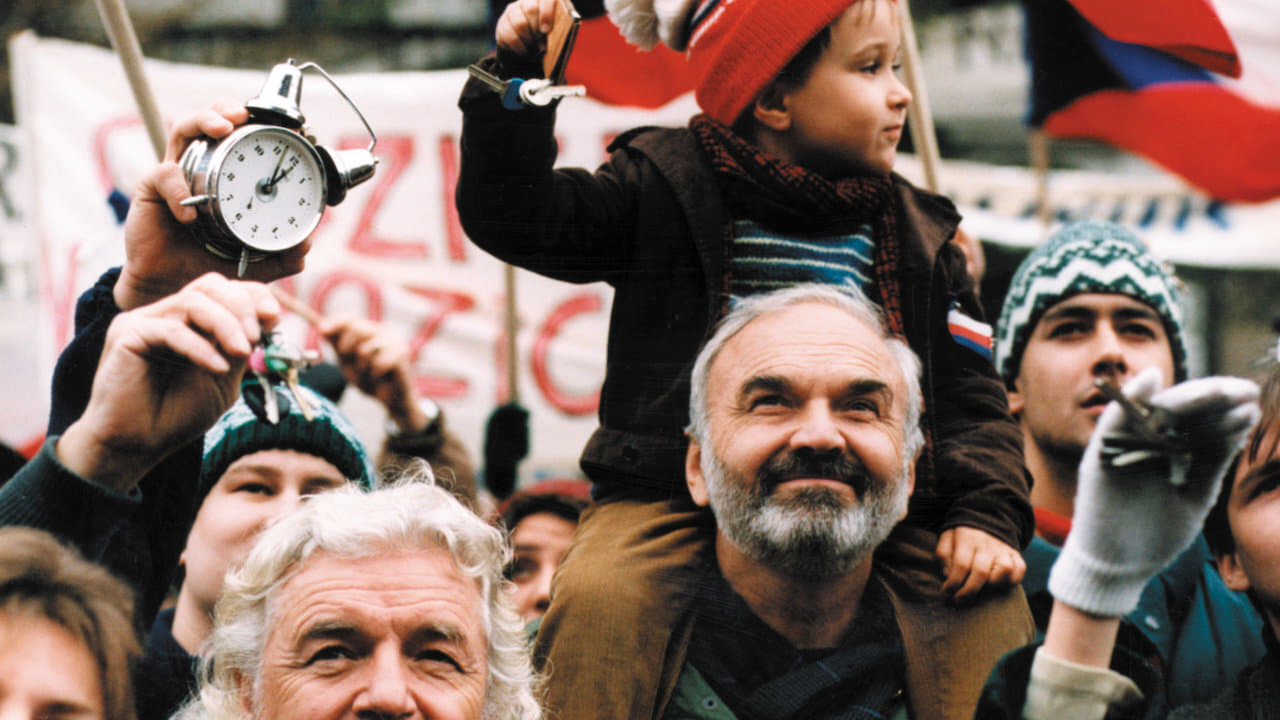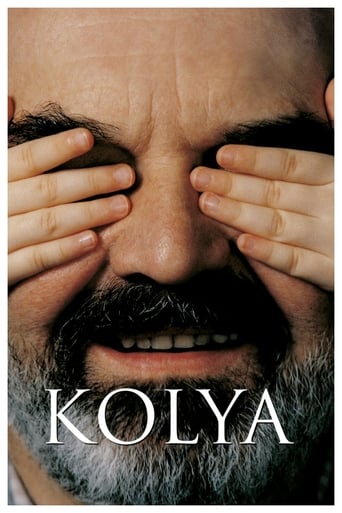

Such a frustrating disappointment
... View MoreI didn’t really have many expectations going into the movie (good or bad), but I actually really enjoyed it. I really liked the characters and the banter between them.
... View MoreExcellent characters with emotional depth. My wife, daughter and granddaughter all enjoyed it...and me, too! Very good movie! You won't be disappointed.
... View MoreOne of the best movies of the year! Incredible from the beginning to the end.
... View MoreI haven't seen as many Czech movies as I would like to, but I've liked all the ones that I've seen. Among those is Jan Svěrák's Oscar-winning "Kolja" (rendered "Kolya" in English). The director's father Zdeněk plays a concert cellist making a living by playing at funerals as the Soviet Union's grip on Czechoslovakia is weakening. But then his life changes after he has to take a five-year-old boy under his wing.The cinematography, character development, and historical context all combine to make this one fine movie. I don't know that I would go so far as to call it a masterpiece, but it's a fine piece of work, both for the plot and the acting. I recommend it, and I hope to see more movies by Jan Svěrák.
... View MoreWell... how shall I put it? If you want some poetry about the human soul and there is no book available go and see Kolya. In a world voided of any human personality, needs, hopes only kindness can touch and heal. And who in this world can show all this better than a kid. Take your time and go for a stroll in the sunshine of humanity. I can only write five lines. I can only write five lines. I can only write five lines. I can only write five lines. I can only write five lines.I can only write five lines. I can only write five lines.I can only write five lines. I can only write five lines.I can only write five lines. I can only write five lines.
... View MoreKoyla started out full of promise and had my full attention in the beginning. There's a fair bit of suspense and fun as we try to work out who our man is and how his womanising is going to turn out. There's a fair bit of humour and nice cinematography and you get a nice feel for the country. But then after Kolya the boy turns up it starts to get a bit slushy. There are some nice tender moments but for me it all got too much and you need some drama to balance that out. Only when our man is being interrogated do we get any further suspense. But from then on it's just more of the same, nice filming, child caring and 'sweet' moments but it all got too much for me after a while and I began tuning out. The main actor didn't really express much range of emotion either and he and the film just began to come off as a bit one dimensional as the film dragged to its predictable conclusion.
... View MoreTHis movie is great! all of the actors should be frozen to be kept alive, it such a great story. It's about a playboy who gets stuck with a four year old boy for two weeks. in the beginning the only time they interacted was when they slept in the same bed, but by the end they couldn't be separated. if you've consider seeing this movie, you should!!!!!!! it is incredible!!!! it has such emotion, when it was over i just sat there for two hours, just thinking and sometimes crying, but golly gee it is so great. i can't believe anyone could not enjoy this. even satin himself would have to take his pitchfork out of someones heart and sit down and think about the values of this movie. it is so good!!!!!!!!!!!!!!!!!!!!!!!!!!!!!!!!!!!!!!!!!!!!!!!!!!!!!! !!!!!!!!!!!!!!!!!!!!!!!!!!!!!!!!!!!!!!!!!!!!!!!!!!!!!!!!!! !!!!!!!!!!!!!!!!!!!!!!!!!!!!!!!!!!!!!!!!!!!!!!!!!!!!!!!!!! !!!!!!!!!!!!!!!!!!!!!!!!!!!!!!!!!!!!!!!!!!!!!!!!!!!!!!!!!! !!!!!!!!!!!!!!!!!!!!!!!!!!!!!!!!!!!!!!!!!!!!!!!!!!!!!!!!!!!!!!!!!!!!!!!!!!!!!!!!!!!!!!!!!!!!!!!!!!!!!!!! !!!!!!!!!!!!!!!!!!!!!!!!!!!!!!!!!!!!!!!!!!!!!!!!!!!!!!!!! !!!!!!!!!!!!!!!!!!!!!!!!!!!!!!!!!!!!!!!!!!!!!!!!!!!!!!!!!! !!!!!!!!!!!!!!!!!!!!!!!!!!!!!!!!!!!!!!!!!!!!!!! it truly deserves all of those exclamation points.
... View More